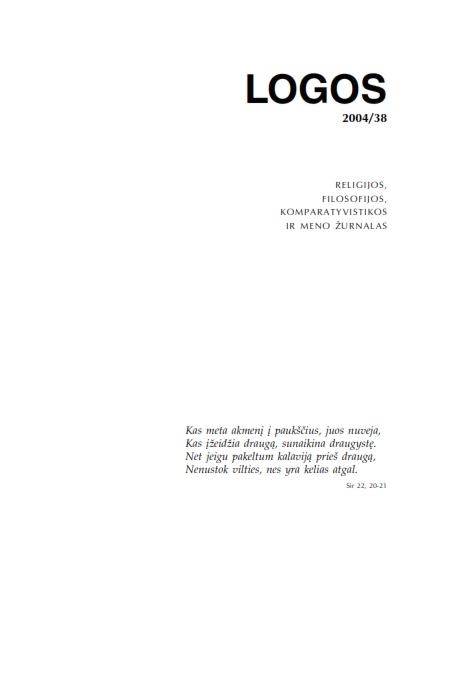Malebranche'o tiesos pažinimo metodas
Malebranche’s Way to Know the Truth
Author(s): Dalia Marija StančienėSubject(s): Metaphysics, Epistemology, Early Modern Philosophy, Philosophy of Mind, Cognitive Psychology
Published by: Visuomeninė organizacija »LOGOS«
Keywords: Cognition; truth; method; cryterium of objectivity; metaphysics;
Summary/Abstract: Nicolas Malebranche, a French philosopher of the 17th century influenced by Descartes, created a distinctive system of cognition. Following Descartes, he presented rules of cognition, the main criteria of which is obviousness. The scientific basis of his method is universal mathematics and scientific physics. Malebranche rejected the methodical doubt of Descartes, claiming that self-cognition is not real cognition, for we have no idea of the soul. According to him, cognition goes directly through the constructs of reason (perception) and ideas. Ideas belong not so much to human reason as to God, and therefore they are immutable. Cognition by means of ideas is perfect. Malebranche shows that the truth is not creature: it is God Himself. The obviousness is the comprehension of relations between God and man.
Journal: LOGOS - A Journal of Religion, Philosophy, Comparative Cultural Studies and Art
- Issue Year: 2004
- Issue No: 38
- Page Range: 65-78
- Page Count: 14
- Language: Lithuanian

